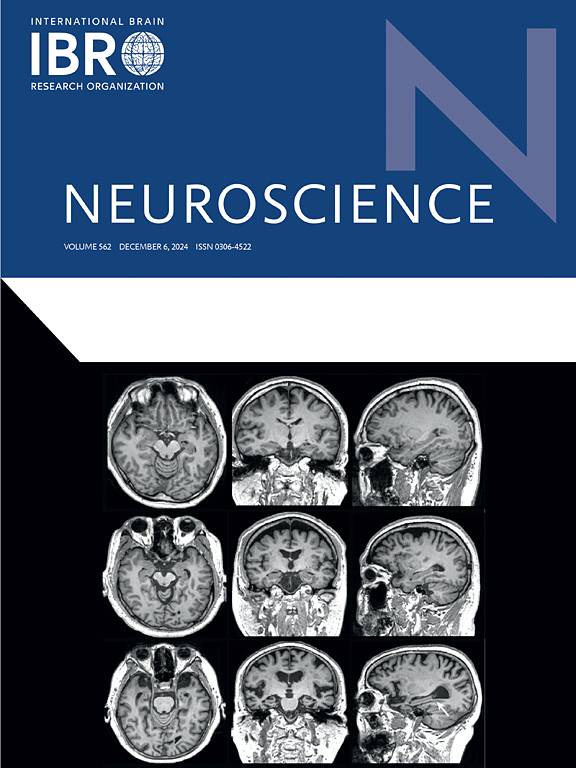The role of polyunsaturated fatty acids in neurodevelopmental pediatric outcomes in the settings of gestational diabetes and obesity: A comprehensive review
IF 2.8
3区 医学
Q2 NEUROSCIENCES
引用次数: 0
Abstract
Obesity is one of the major concerns of global health. Globally, 6–12% of women with obesity also curse with gestational diabetes mellitus (GDM). Obesity and GDM constitute a major risk to maternal and fetal health with evidence suggesting an association with offspring cardiometabolic risk, respiratory disorders, and neurodevelopmental problems. Fatty acids, specifically polyunsaturated fatty acids (PUFAs), play a crucial role in fetal neurodevelopment and during early life stages. In addition to their neurogenesis-promoting properties, PUFAs have anti-apoptotic effects and provide neuroprotection against brain injury and oxidative stress. Some lipid metabolism enzymes have been recognized at synaptic terminals, proving PUFAs play a role in synaptogenesis, locally modulating synaptic transmission. On a cellular level, PUFAs suppress the production of arachidonic-acid-derived eicosanoids which modulate the production of pro-inflammatory and immunoregulatory cytokines. On a subcellular level, when ingested through the diet, PUFAs are distributed and enriched into cells and their membranes where they impact both metabolism and survival. For instance, mitochondria maintain both cellular homeostasis and calcium concentrations in the cell. Maternal PUFA concentrations during pregnancy are hypothesized to be associated with children’s cognitive and neuropsychiatric outcomes, including intelligence and IQ traits and autism spectrum disorders. Most recent evidence demonstrated a positive association between maternal dietary intake of PUFAs and fetal neurodevelopment. Nevertheless, establishing clear, evidence-based guidelines on the appropriate types, doses, and timing of PUFA supplementation for high-risk pregnancies could improve maternal and pediatric health outcomes.

多不饱和脂肪酸在妊娠糖尿病和肥胖症儿童神经发育结局中的作用:一项全面的综述
肥胖是全球健康的主要问题之一。在全球范围内,6-12%的肥胖妇女还患有妊娠糖尿病(GDM)。肥胖和GDM是孕产妇和胎儿健康的主要风险,有证据表明它们与后代心脏代谢风险、呼吸系统疾病和神经发育问题有关。脂肪酸,特别是多不饱和脂肪酸(PUFAs),在胎儿神经发育和生命早期阶段起着至关重要的作用。除了促进神经发生的特性外,PUFAs还具有抗凋亡作用,并对脑损伤和氧化应激提供神经保护。一些脂质代谢酶已在突触末端被识别,证明PUFAs在突触发生中发挥作用,局部调节突触传递。在细胞水平上,PUFAs抑制花生四烯酸衍生的类二十烷酸的产生,而类二十烷酸可以调节促炎和免疫调节细胞因子的产生。在亚细胞水平上,当通过饮食摄入时,pufa分布并富集到细胞及其膜中,从而影响代谢和生存。例如,线粒体既维持细胞内稳态又维持细胞内钙浓度。怀孕期间母体PUFA浓度被假设与儿童的认知和神经精神预后有关,包括智力和智商特征以及自闭症谱系障碍。最近的证据表明,母体饮食中PUFAs的摄入与胎儿神经发育呈正相关。然而,建立明确的、以证据为基础的指南,确定高危妊娠补充多聚脂肪酸的适当类型、剂量和时间,可以改善孕产妇和儿科的健康结果。
本文章由计算机程序翻译,如有差异,请以英文原文为准。
求助全文
约1分钟内获得全文
求助全文
来源期刊

Neuroscience
医学-神经科学
CiteScore
6.20
自引率
0.00%
发文量
394
审稿时长
52 days
期刊介绍:
Neuroscience publishes papers describing the results of original research on any aspect of the scientific study of the nervous system. Any paper, however short, will be considered for publication provided that it reports significant, new and carefully confirmed findings with full experimental details.
 求助内容:
求助内容: 应助结果提醒方式:
应助结果提醒方式:


